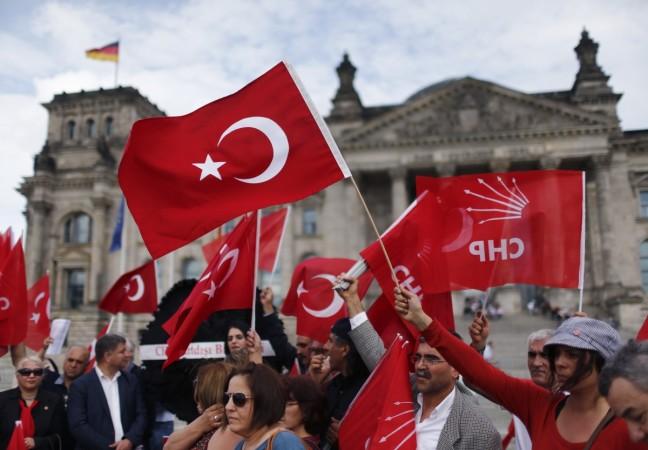
UPDATE: June 3, 2016: 12:08 a.m. IST — Turkey has called its ambassador from Berlin back to Ankara for consultations after the German Parliament approved a resolution describing the First World War massacre of almost 1.5 million Armenians by Ottoman Turks as "genocide".
According to the Guardian, the Turkish president said that this decision would "seriously affect" relations between Germany and Turkey. Turkey's Prime Minister Binali Yıldırım, Deputy Prime Minister Numan Kurtulmuş, and Foreign Minister Mevlut Cavusoglu have condemned the decision, the daily reported.
UPDATE: June 2, 2016: 4.25 p.m. IST — The German Parliament has approved a resolution declaring the 1915 massacre of around 1.5 million Armenians by the Ottomans as "genocide," according to a BBC report.
Chancellor Angela Merkel was not in Bundestag for the vote. Her Christian Democrats, their coalition partners the Social Democrats and the Greens supported the resolution, the report stated.
Original Story —
The German Parliament is likely to approve a resolution on Thursday that will officially declare the 1915 killings of Armenians by the Ottoman forces a "genocide", a move that may jeopardise relations between Germany and Turkey.
According to Reuters, Turkey rejects the idea that the massacre of around 1.5 million Armenians during the First World War amounted to genocide and has warned German Chancellor Angela Merkel that the declaration could damage bilateral ties. They believe that thousands of people, including Turks, died in a civil war that ruined the Ottoman Empire, the New York Times reported.
The move comes in at a time when Merkel is depending on Turkey to stem the flow of refugees from the Middle East to Europe in exchange for cash, visa-free travel rights and accelerated talks on European Union membership, stated the Reuters report.
Recep Tayyip Erdogan, the President of Turkey, was quoted by the NYT as saying that he had warned Merkel of possible consequences if the resolution was passed. "If Germany is to be deceived by this, then bilateral, diplomatic, economic, trade, political and military ties — we are both NATO countries — will be damaged," he said.
The resolution also condemns the then German empire, which was in alliance with Ankara, for not taking measures to stop the massacre. Reuters reported that the resolution has been supported by the opposition Greens party, the lawmakers from Merkel's conservative bloc and the center-left Social Democrats.
Germany is expecting a backlash from Turkey but German officials hope that it will not affect the migrant deal between the EU and Turkey. "We can only hope this doesn't lead to an over-reaction from the Turkish side," Franz Josef Jung, a senior lawmaker in Merkel's Christian Democratic Union (CDU), was quoted by the agency as saying.
Merkel will apparently not be in Bundestag for the vote due to public appointments.
According to NYT, 11 of the EU's 28 members have passed similar resolutions recognising the Armenian massacre as genocide. Despite initial protests, Turkey has maintained good relations with several of those countries.
Debate intensified in Germany last weekend when almost 2,000 Turks organised a demonstration in Berlin, rallying to the slogan that Parliament is not a court and therefore should not pass the judgement. Germany is home to an estimated three million people of Turkish descent, many of them dual citizens.











